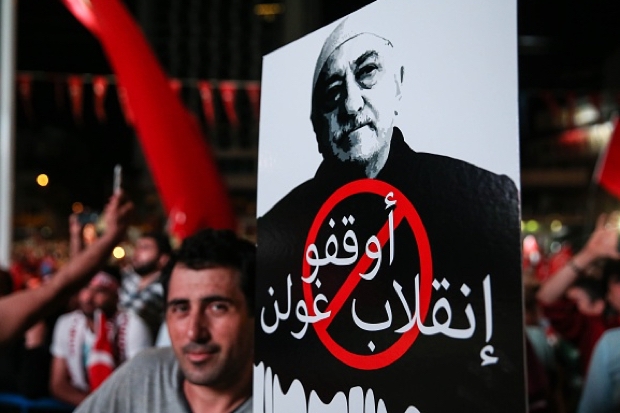The three-month school summer recess began in Turkey just over four weeks ago. But for some teachers they may never see the inside of a school here again. As part of President Erdogan’s post-failed coup cleansing, 21,000 teachers have had their licenses revoked. I’ll say that again, 21,000 teachers have had their licenses revoked. Why? It’s simple, they’ve been accused of having links to a movement which Turkey has proscribed a terrorist organisation. In reality this is McCarthyism playing out in the 21st century.
The group they’ve been associated with is an Islamic and social movement led by a cleric called Fethullah Gulen. It funds private schools and universities in more than 180 countries. Until a week ago, that included Turkey. No more. Fethullah Gulen has been directly accused by the Turkish President in a TV interview of masterminding the 15 July attempted coup. He has strongly denied any involvement, but anyone with any inkling of a link to his movement is now being sniffed out.
‘Due process will be followed, the law of the land will be adhered to,’ is to paraphrase what Turkey’s Prime Minister, Binali Yildirim (whose surname means lightening) has said in relation to the thousands who’ve been detained and accused of links to Gulen. Little has been said about what will happen to the teachers who have lost their livelihoods, except that they will never work again for the Turkish state.
When I questioned my Turkish friends about what that would mean, they brushed me off with ‘oh they’ll be fine, they’ll move abroad and teach somewhere else’. I suppose that’s easy to say when you have no compassion for the plight they and their families may now face. They say lighting doesn’t strike in the same place twice. If only that were true for the 21,000, many of whom woke up 48 hours later to find their passports had also been cancelled. Tough luck getting that job abroad now.
But it goes further than just those teachers. Journalists, academics, judges, lawyers, police officers and former politicians are all being weeded out alongside members of the military accused of being somehow linked to Gulen or the coup. Dozens of media organisations have been closed. No-one is safe and that puts people on edge. A colleague I barely know joked to me that if her manager didn’t like her, she may tell the authorities ‘that I support Gulen’. The gag fell flat.
So who is Fethullah Gulen and why is Turkey so insistent he’s the one to blame? The cleric was once a strong ally of President Erdogan and for years they worked together to bring the now ruling Justice and Development Party into power. That relationship appeared solid even when he moved to the US in 1999, but unravelled in 2013 when members of President Erdogan’s family were accused of being involved in a corruption scandal. Erdogan blamed the Gulenists for initiating it and of attempting to overthrow the government through a judicial coup.
The movement was labelled ‘a terrorist organisation’ earlier this year, sealing the fate of so many people. Turkey is yet again demanding his extradition from the United States, a plea that has previously fallen on deaf ears. But now Gulen is accused of being behind the coup attempt and it appears for most in Turkey that the President’s say-so on this matter is enough evidence. Papers are being drawn up to send to the US over these latest claims and the US has said it will look closely into the matter. But that’s not enough for Turkey. Anything less than a rousing ‘we will send him back to you immediately’ is taken as a snub.
The Turkish Prime Minister has been clear. If the US doesn’t send him back, ‘US-Turkey relations will be severely damaged’. The US Vice President, Joe Biden, has said the US will work with Turkey, but the final decision will rest in the courts. This will never be good enough for the Turks who support Erdogan. If Gulen isn’t extradited there will be trouble ahead. An American friend of mine admitted over supper last night that he was already feeling the heat of his country’s inability to throw itself full throttle behind the extradition. ‘Everywhere I go, Turks just shake their head at me. I even had one guy shout at me,’ he said.
I would love to read the dossier Turkey is putting together on Gulen. In my head it has little more in terms of substance than ‘the President said it was him’. What concerns me more is that I have a feeling that the US will extradite him, regardless of how flimsy the evidence may be. And that will say more about the rising stock of Turkey in our modern world than anything else.
Rose Asani is a journalist based in Istanbul






Comments